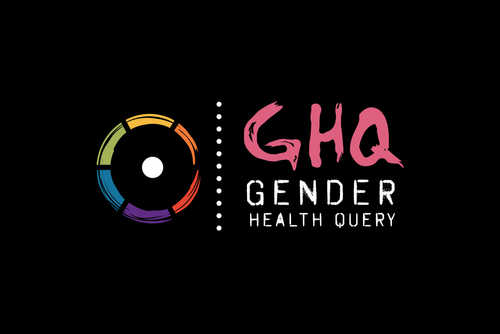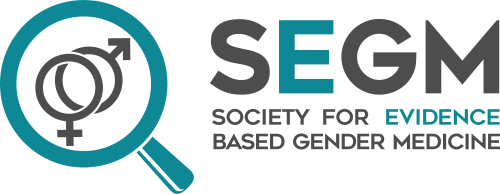This appears to be the root of the "social contagion" / "grooming" theory of gender dysphoria.

en.wikipedia.org
Controversy surrounds the concept of
rapid-onset gender dysphoria (
ROGD), proposed as a subtype of
gender dysphoria and said to be caused by peer influence and
social contagion.
[1] ROGD has not been recognized by any major professional association as a valid mental health diagnosis, and use of the term has been discouraged by the
American Psychological Association, the
American Psychiatric Association, the
World Professional Association for Transgender Health, and other medical organizations due to a lack of reputable scientific evidence, major methodological issues in existing research, and likelihood to cause harm by stigmatizing
gender-affirming care.
[2][3][4][5]
Lisa Littman, at the time an adjunct assistant professor at the
Icahn School of Medicine at Mount Sinai, coined the term
rapid-onset gender dysphoria in a 2018 study based on an online survey of parents on three
anti-trans websites who believed that their teenage children had suddenly manifested symptoms of gender dysphoria and begun identifying as
transgender simultaneously with other children in their peer group.
[1][6][7] Littman speculated that rapid onset of gender dysphoria could be a "social
coping mechanism" for other disorders.
[8]
In August 2018, Littman (then an assistant
professor of the practice at the
Brown University School of Public Health) published a descriptive study in
PLOS One.
[8] Criticism of the study's methodology and conclusions was voiced by some clinicians, researchers, and transgender activists, and two weeks after publication,
PLOS One responded by announcing a
post-publication review of the paper.
[9][10] On the same day as
PLOS One announced its post-publication review, Brown University retracted its press release promoting the study.
[9] Controversy surrounding the paper grew as articles and opinion pieces, both critical and supportive, were published in mainstream media discussing concerns about the study's methodology and the validity of its hypotheses,
[10][11][12] as well as issues of
academic freedom.
[9] Conservative media outlets heavily publicized the article and criticized Brown recalling its initial press release concerning the paper.
[13][14][15] In March 2019, the journal concluded its review and republished Littman's revised and corrected version.
[16] In 2022, Littman stood by the core claims she made in her study, adding that ROGD "does not apply to all cases of gender dysphoria" and "doesn't imply that nobody benefits from transition".
[17]
ROGD has been criticized as "anti-trans propaganda and bad science".
[18] Medical and other journals have published results of individual research studies that did not support claims that ROGD is identifiable as a distinct phenomenon, or that the onset of transgender identity among young people is influenced by social contacts online or in their real lives. Other critiques called it "methodologically flawed", said that it represented a "
moral panic", or questioned whether self-reported transgender identity was, in fact, increasing.[
citation needed] In 2021, the
American Psychological Association and the
American Psychiatric Association cosigned a statement with 120 other medical organizations in the evidence-based Coalition for the Advancement & Application of Psychological Science, calling for ROGD and other "anti-trans theories" not to be used in diagnostic or clinical settings, due to their lack of reputable scientific evidence. The statement also criticized the proliferation of misinformation supporting the concept of ROGD targeted at parents and clinicians and the concept's use to justify
laws limiting the rights of transgender youth in the United States.
[5]
Original publication
Lisa Littman, an American physician and researcher, coined the term "rapid-onset gender dysphoria" at the outset of her research for a descriptive study originally titled "Rapid-onset gender dysphoria in adolescents and young adults: A study of parental reports".
[19] Littman's medical
specialties are in
preventive medicine and
public health, as well as
obstetrics and gynecology.
[20] Her research interests relate to
reproductive health,
gender dysphoria,
detransition, and
maternal and child health including prematurity and the use of substances in pregnancy.
[20] Littman joined the faculty of the
Brown University School of Public Health in 2018 as assistant professor of the Practice in Behavioral and Social Sciences.
[20]
Littman, then an adjunct assistant professor at the
Icahn School of Medicine at Mount Sinai, became interested in the possible role of
social contagion in
gender dysphoria among young people after noticing that, in her small town in
Rhode Island, a few teenagers in the same friend group began identifying as transgender. She conducted a study by collecting 256 responses from an online survey, which was
not randomly distributed, but rather targeted at parents recruited from three anti-transgender websites where she had seen parents describe what they believed were sudden
gender transitions in their adolescents: 4thWaveNow,
Transgender Trend, and Youth TransCritical Professionals. The transgender youth themselves had no say in the study.
[1][6][10][17] Littman said she encouraged wide distribution of the survey beyond these three sites,
[10] but the study states that participants were encouraged to distribute the study only to "individuals or communities that they thought might include eligible participants", which the study defined as parents who believed "their child had a sudden or rapid onset of gender dysphoria", thus using another nonprobability sampling method known as
snowball sampling.
[8][21] Of the three websites, an article published in
Science described the first two as "gathering places for parents concerned by their children's exploration of a transgender identity", with the third being closed to non-members.
[10] Bioethicist
Florence Ashley described the first as "dedicated to opposing gender-affirmative care for trans youth", and the latter two as dedicated to opposing what they call "trans ideology".
[1]
More than three-quarters of the parents surveyed had
rejected their child's transgender identity. Arjee Restar, a behavioral health researcher then also at the Brown School of Public Health, wrote that the three sites were frequented by parents who already specifically promoted the concept of ROGD and that the websites were "known for telling parents not to believe their child is transgender".
[22]
Littman's study described what the surveyed parents believed to be a rapid onset of gender dysphoria among their children,
[10] along with information the parents reported about their children's
peer group dynamics,
social media use, and prior
mental health issues.
[23] Littman speculated that rapid onset of gender dysphoria could be a "social coping mechanism" for other disorders, such as
depression and
anxiety caused by adolescent trauma.
[8] Littman presented preliminary results at a 2017 conference, and the descriptive study was initially published in
PLOS One in August 2018.
[8][10]
According to
MIT Technology Review, "while theories and rumors about something like ROGD had quietly percolated online before the paper was published, Littman's descriptive study gave legitimacy to the concept. ... The ROGD paper was not funded by anti-trans zealots. But it arrived at exactly the time people with bad intentions were looking for science to buoy their opinions."
[17]
Correction
The paper was met with criticism from health researchers, transgender activists, and others, who stated that it had already been
politicized, and that there was
self-selection bias of the subjects that Littman surveyed, as she only surveyed parents and not the young people themselves nor the health professionals caring for them.
[10][12][22] Responding to negative comments,
PLOS One announced two weeks after publication that it would open a post-publication review of the study's methodologies and analyses.
[9][10][22][24]
In March 2019,
PLOS One completed its post-publication review, and Littman's corrected version of the paper was published on March 19, 2019.
[25] In the journal's blog,
PLOS One editor Joerg Heber apologized "to the trans and gender variant community" for the previous review and publication, saying "the study, including its goals, methodology, and conclusions, were not adequately framed in the published version, and that these needed to be corrected."
[26] Heber noted that the hypothesized condition of ROGD had "not yet been clinically validated".
[26]
In a notice of correction prefacing her updated version of the study, Littman stated:
[T]he post-publication review identified issues that needed to be addressed to ensure the article meets
PLOS ONE's publication criteria. Given the nature of the issues in this case, the
PLOS ONE Editors decided to republish the article, replacing the original version of record with a revised version in which the author has updated the Title, Abstract, Introduction, Discussion, and Conclusion sections, to address the concerns raised in the editorial reassessment. The Materials and methods section was updated to include new information and more detailed descriptions about recruitment sites and to remove two figures due to copyright restrictions. Other than the addition of a few missing values in Table 13, the Results section is unchanged in the updated version of the article.
[16]
PLOS One's editor wrote that "the corrected article now provides a better context of the work, as a report of parental observations, but not a clinically validated phenomenon or a diagnostic guideline".
[26] On behalf of the journal, Heber wrote: "Correcting the scientific record in this manner and in such circumstances is a sign of responsible publishing", where further scrutiny was called for to "clarify whether the conclusions presented are indeed backed up by the analysis and data of that original study".
[26] Heber later stated, "At its core, the survey of the parents stands as it is... We let the original results stand."
[25]
Littman responded in 2022 to what she described as mistaken assumptions about the study's goals, describing it as a "very good-faith attempt" to "find out what's going on" and adding, "As a person I am liberal; I'm pro-LGBT. I saw a phenomenon with my own eyes and I investigated, found that it was different than what was in the scientific literature." Littman has also stated that her paper "does not apply to all cases of gender dysphoria" and "doesn't imply that nobody benefits from transition". Littman stood by the core claims she made in her study, including its conclusion that more research needs to be conducted.
[17]
Terminology
The term "rapid-onset gender dysphoria", coined by Littman, first appeared in a July 2016 notice that was posted on four websites, recruiting parents to respond to a research survey that Littman described as "Rapid onset gender dysphoria, social media, and peer groups".
[27] In the title of Littman's
poster abstract for the study, published in February 2017, the phrase appeared as "Rapid Onset of Gender Dysphoria".
[28]
In 2019, Littman noted that "Rapid-onset gender dysphoria (ROGD) is not a formal mental health diagnosis at this time."
[16] She wrote:
This study of parent observations and interpretations serves to develop the hypotheses that rapid-onset gender dysphoria is a phenomenon and that social influences, parent-child conflict, and maladaptive coping mechanisms may be contributing factors for some individuals. ... This report did not collect data from the adolescents and young adults (AYAs) or clinicians and therefore does not validate the phenomenon.
[16]
In a formal comment published by
PLOS One at the conclusion of its review, academic editor and Professor of Social Psychology Angelo Brandelli Costa wrote, "the level of evidence produced by the Dr. Littman's study cannot generate a new diagnostic criterion relative to the time of presentation of the demands of medical and social gender affirmation."
[29] Costa suggested, "Several procedures still need to be adopted to generate a potential new subcategory of gender dysphoria that has not yet been clinically validated. One of these procedures is the assessment of mental health professionals trained according to the World Professional Association for Transgender Health (WPATH) and the American Psychological Association (APA) guidelines, interviewing not just the family, but the youth (longitudinally)."
[29]
Reactions
Institutional
On the same day that
PLOS One announced its review, Brown University took down a press release it had earlier posted about the paper.
[9][30] Responding to critics, Brown University president
Christina Paxson and Provost
Richard M. Locke said they had not infringed on academic freedom and stated that Brown's commitment to only "publicize research that unassailably meets the highest standards of excellence" required Brown to retract the press release after
PLOS One opened an investigation on the paper in question.
[31] They said that "given the concerns raised about research design and methods, the most responsible course of action was to stop publicizing the work published in this particular instance. We would have done this regardless of the topic of the article."
[32]
Academic
Several critiques of the study have been published in peer-reviewed journals. In a 2020 paper published in
The Sociological Review, bioethicist Florence Ashley described the study as an attempt to circumvent existing research supporting gender-affirming care.
[1] Sociologists Natacha Kennedy and Victoria Pitts-Taylor, in two separate 2020 publications in the
Journal of LGBT Youth and
Sexualities, described ROGD as a
moral panic and argued that trans youth are often aware of their identity long before coming out to their parents.
[33][7]
Shortly after
PLOS One published the corrected study, a critique of the original study's methodology appeared in
Archives of Sexual Behavior.
[22] The author, Arjee Restar, argued that Littman's study was fatally methodologically flawed, beginning with the choice to sample exclusively from users of three websites "known for telling parents not to believe their child is transgender", with the result that three-quarters of those surveyed had rejected their child's gender identity; 91 percent of respondents were white, 82 percent were women, and 66 percent were between the ages of 46 and 60. She wrote that the study was mostly composed of "white mothers who have strong oppositional beliefs about their children’s trans identification" and that there was very little evidence that Littman's survey responses were representative of trans youth and young adults as a whole.
[22]
In a letter to the editor, Littman responded that her methodologies were consistent with those that had been used, without controversy, in widely cited studies supporting gender identity affirmation health care.
[34]
In 2022, the eighth edition of
WPATH's Standards of Care (SOC-8)—a publication providing clinical guidance for healthcare professionals working with transgender and gender diverse individuals—criticized the study due to its methodological flaws. The study's focus on parents of transgender youth recruited from communities with skepticism towards
gender affirming care presents difficulty in establishing social influence as a possible factor in development of gender dysphoria. According to the SOC-8, the study's results also have not been replicated by other researchers.
[35]
The
SAGE Encyclopedia of Trans Studies describes ROGD as "an anti-trans theory" that "violates principles of research methods by using a pathologizing framework and language", using terminology that compares gender dysphoria and transgender identification to a contagious disease, in opposition to organizations such as WPATH, the American Psychiatric Association, and the
World Health Organization who state that being trans is not a mental disorder. The encyclopedia further states that bias appears to be present at every stage of the study, including its basic premise, the absence of random sampling, self-selection bias in the recruitment process, and the data collection procedure, which was described as "fundamentally flawed in a number of critical ways". Additionally, the encyclopedia entry notes that, although the parents may have believed the development of their child's gender identity to have been abrupt, the data were not collected from the youths themselves, and so Littman's study cannot ascertain whether these individuals had simply chosen not to reveal their gender identity at an earlier time.
[18]
Anti-LGBTQ groups
The
Southern Poverty Law Center stated "The rise of
anti-trans sentiment among
anti-LGBTQ groups has fueled a cottage industry of anti-trans research that in turn is promoted by anti-LGBTQ groups, including
ACPeds, which has become a go-to for expertise in anti-trans
pseudoscience", listing the original study as an example, further stating "anti-LGBTQ media circulated the study widely, and ACPeds' Cretella touted the study at the 2018 Values Voter gathering (sponsored by anti-LGBTQ hate group
Family Research Council)."
[36]
The
Human Rights Campaign stated "anti-LGBTQ+ activists often use concerns about internet safety in order to spread harmful rumors about the LGBTQ+ community. You may see opponents of trans people specifically use junk science by Lisa Littman at Brown University to falsely claim that access to social media and the internet has created a 'contagion' that causes many youth to mistakenly identify as transgender."
[37]
Popular press
Scholars writing in
The Conversation and journalists in
Slate columns have condemned what they saw as
politicization of science by social conservatives.
[12][38] Madeleine Kearns, a contributing writer at
National Review, called for further study into the proposed phenomenon.
[39] Writer and transgender advocate Liz Duck-Chong described the hypothesized condition as "a poisonous lie used to discredit trans people" in an
op-ed published in
The Guardian,
[11] while Abigail Shrier, who later published the controversial book
Irreversible Damage about the concept, called it an explanation for the experiences of parents in an op-ed published in
The Wall Street Journal.
[23][40][41][42]
In a
Psychology Today opinion piece,
Rutgers University psychology professor
Lee Jussim described the
PLOS-requested rewrite of the paper as an "Orwellian correction" involving additions and minor changes where no errors had existed.
[43] Jeffrey Flier, a former dean of
Harvard Medical School, called Brown University's failure to defend Littman "an indictment of the integrity of their academic and administrative leadership", and described Brown's explanation of the retraction as "anti-intellectual" and "completely antithetical to academic freedom".
[10]
Conservative media outlets such as
Fox News,
The Daily Caller,
The Federalist,
Breitbart, and
Quillette heavily publicized the article and criticized Brown recalling its initial press release concerning the paper. Conservative outlets cite the paper to claim that transgender identity is a "trend, phase, or disease".
[13][14][15]
Professional commentary


















